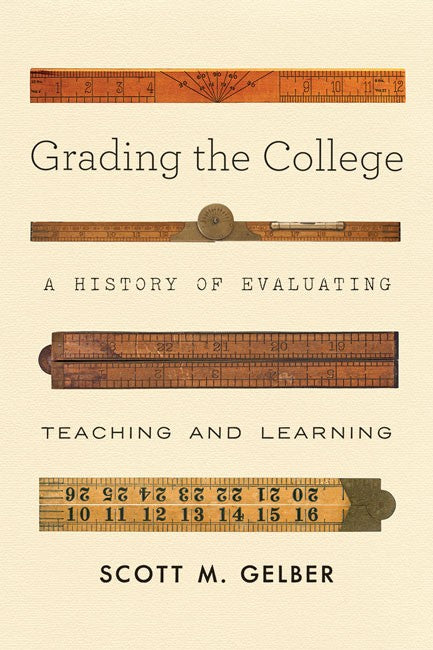In Grading the College, Scott M. Gelber offers a comprehensive history of evaluating teaching and learning in higher education. He complicates the conventional narrative that portrays evaluation as a newfangled assault on the integrity of higher education while acknowledging that there are many compelling reasons to oppose those practices. The evaluation of teaching and learning, Gelber argues, presented genuine dilemmas that have attracted the attention of faculty members and academic leaders since the 1920s. Especially during the peak era of faculty authority that followed the end of the Second World War, significant numbers of professors and administrators believed that evaluation might improve institutional performance, reduce the bias inherent in traditional methods of supervision, strengthen communication with laypersons, and encourage a more deliberate focus on the distinctive goals of college.
Gelber reveals the extent to which professors and academic interest groups participated in the development of our most common evaluation instruments, including student course questionnaires, achievement tests, surveys, rubrics, rankings, and accreditation self-studies. Although these efforts may seem distant from the present era of shortsighted scrutiny and ill-conceived comparisons, Gelber demonstrates that the evaluation of college teaching and learning has long consisted of a set of intellectually sophisticated questions that have engaged, and could continue to engage, faculty members and their advocates. By providing a deeper understanding of how evaluation operated before the dawn of high-stakes accountability, Grading the College seeks to promote productive conversations about current attempts to define and measure the purposes of American higher education.

